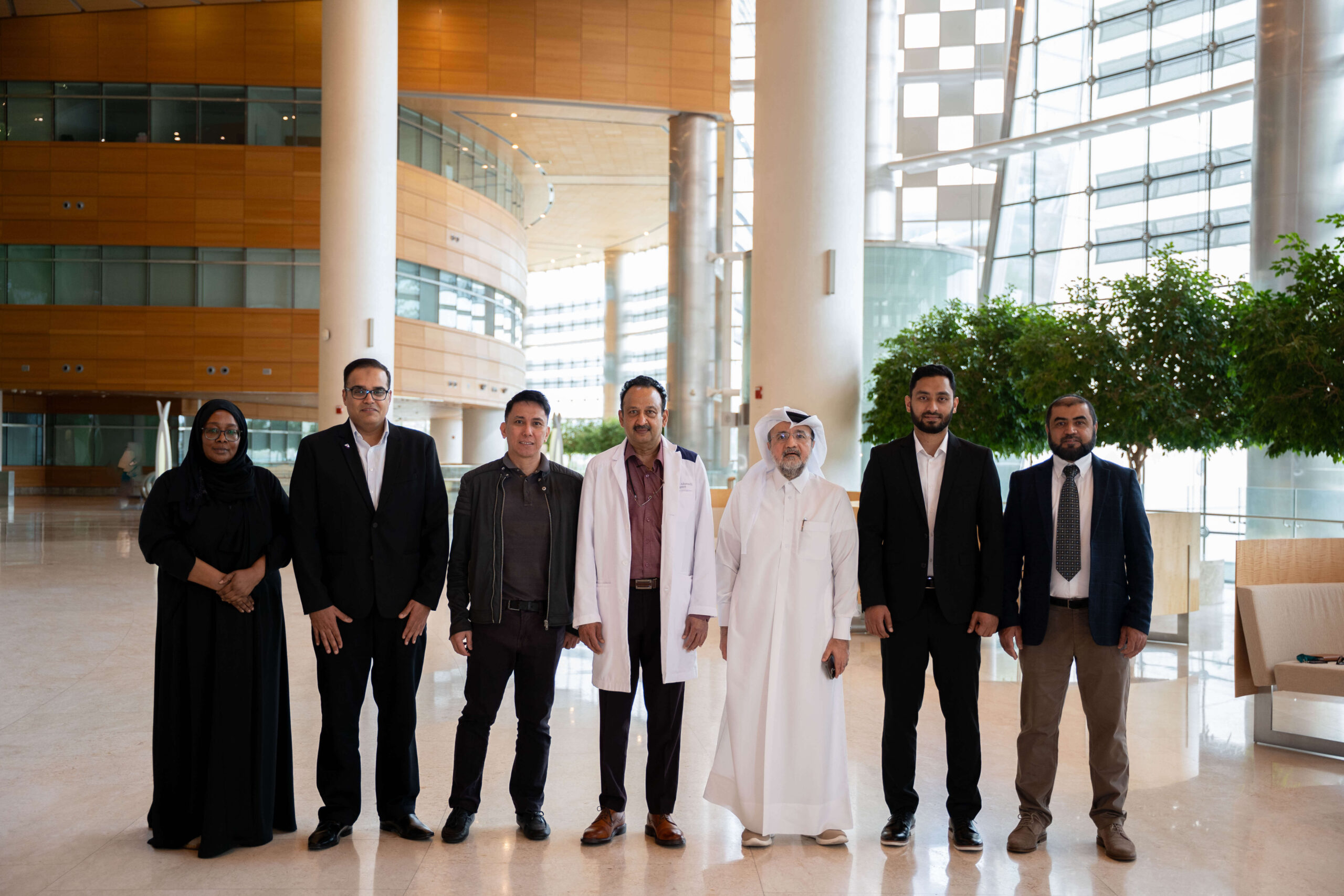Sidra Medicine Publishes Impactful Study on Treatable Inherited Metabolic Disorders in Qatar

Prevalence of Genetic Disorders in the Middle Eastern Population Highlights Importance of Population Screenings
4 December 2024, Doha, Qatar – A groundbreaking study by Sidra Medicine, a member of Qatar Foundation, has been published in ‘Genetics in Medicine’, an official journal of the American College of Medical Genetics and Genomics. Titled “Mapping the Genetic Landscape of Treatable Inherited Metabolic Disorders in a large Middle Eastern Biobank”, the study was also the recipient of the journal’s Editor’s Choice Award.
Done in collaboration with the Qatar Precision Health Institute (QPHI) and led by Dr. Khalid Fakhro, Chief Research Officer and first authored by Dr. Geethanjali Devadoss Gandhi, Senior Postdoctoral Fellow at Sidra Medicine, the study analyzed the genome sequencing data of more than 14,000 participants from QPHI, focusing on 125 genes associated with 115 treatable IMDs.

Inherited Metabolic Disorders (IMDs) are a group of rare conditions caused by enzyme deficiencies with a genetic basis that disrupt the body’s metabolism. Although each IMD is rare, their collective incidence is considerable, commonly estimated at 1 in 2,500 to 5,000 live births.
Prof. Khalid Fakhro said: “Our study fills a critical gap by focusing on the Qatari population, which has been underrepresented in previous genomic datasets. By analyzing the QPHI data, we identified 69 types of treatable IMDs within the Qatari population. Understanding the true prevalence of such metabolic disorders through genetic carrier and newborn screenings, particularly in countries with higher consanguinity rates, can offer us a detailed methodology for future investigations in population biobanks.”
The Sidra Medicine led study revealed a significant carrier frequency1 and disease burden2 for 46 treatable IMDs within the Qatari population. The results showed that approximately 1 in 13 unrelated individuals (eight percent) were carriers of at least one of these IMDs, with thirty-one participants (0.2 percent) carrying more than one disease-causing variant.
It also highlighted a concerning trend with inherited disorders like phenylketonuria (PKU)/ hyperphenylalaninemia and homocystinuria, which exhibited high carrier frequencies (1 in 68 and 1 in 85, respectively) within the Qatari population. The estimated disease burden in the population stands at 1 in 5,038 for PKU/hyperphenylalaninemia and 1 in 6,315 for homocystinuria.
Dr. Geethanjali Devadoss Gandhi said: “Our findings were particularly significant considering that data on PKU/hyperphenylalaninemia prevalence among Qataris is currently unavailable. It underscores the immediate need for further comprehensive research on treatable inherited metabolic disorders. We are hopeful that such research will also lay the ground for new treatment options to address previously unrecognized health concerns within the Qatari population.”
Dr. Ammira Al-Shabeeb Akil, Principal investigator and the lead of Genetics and Metabolic Clinical research program added: “Our study emphasizes the importance of extensive population
screenings across the MENA region. This will pave the way for precision medicine therapies tailored to specific populations. To that end, we believe that our joint Newborn Genome Screening Research Program in collaboration with Hamad Medical Corporation, will help with the early diagnosis of genetic conditions in babies in the general population in Qatar.”
The Sidra Medicine treatable IMD study was also awarded first place for ‘abstract presentation’ at the MENA Congress for Rare Diseases 2024 in Abu Dhabi, highlighting its far-reaching impact on other Arab populations.








